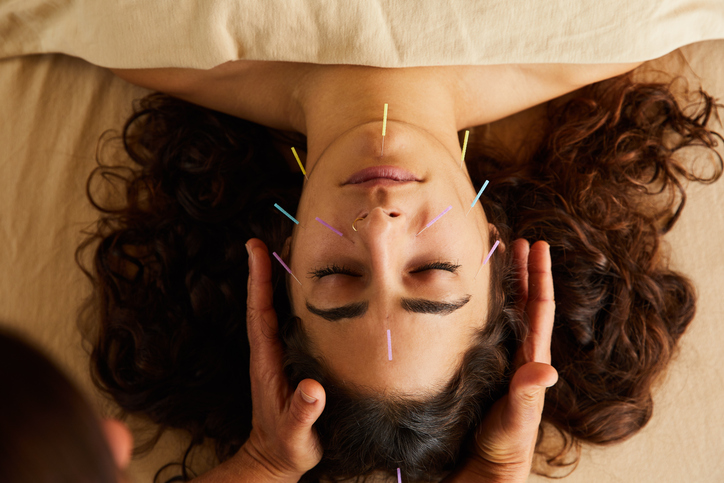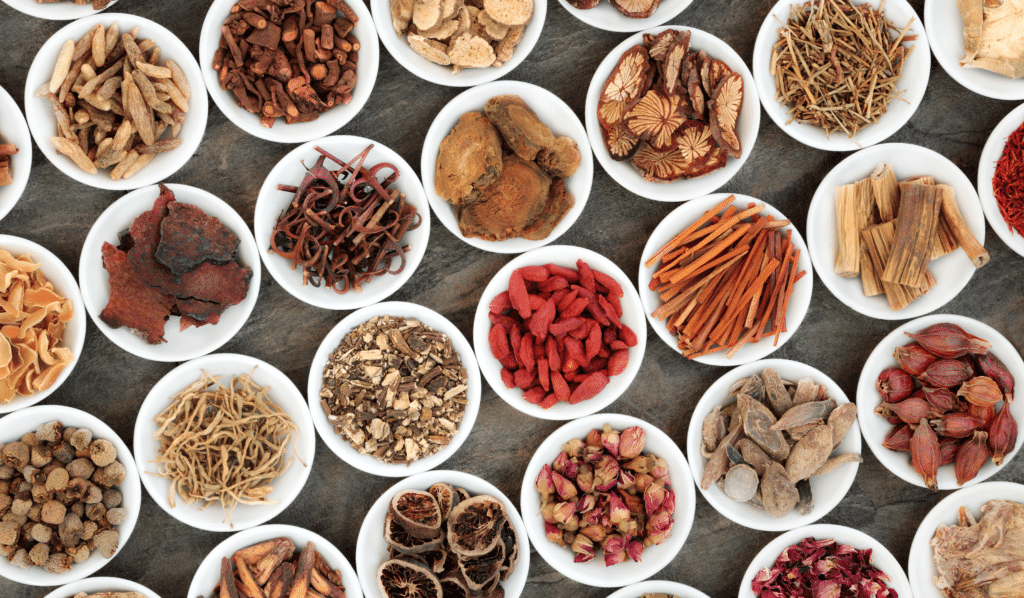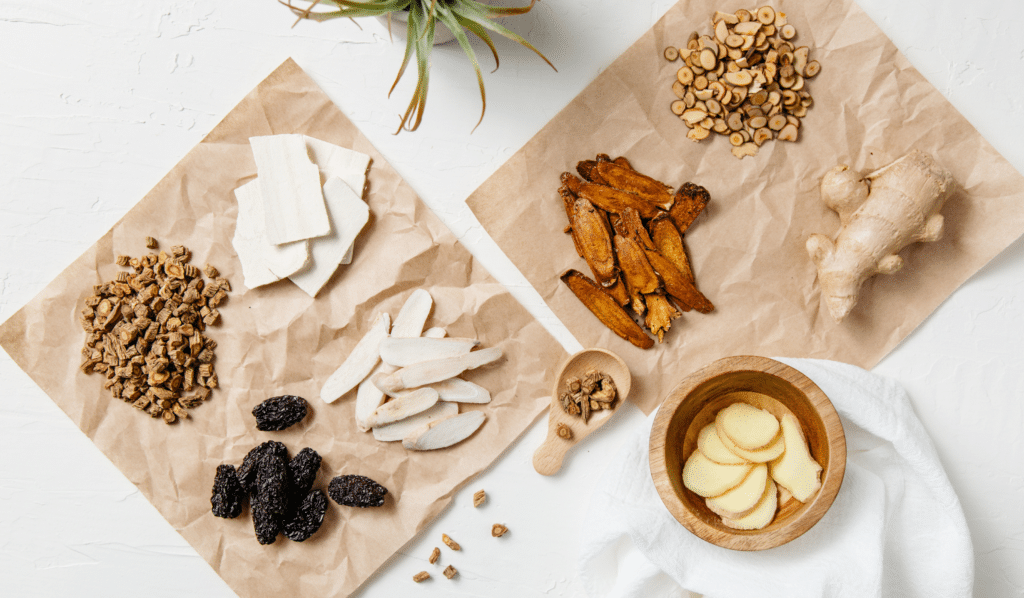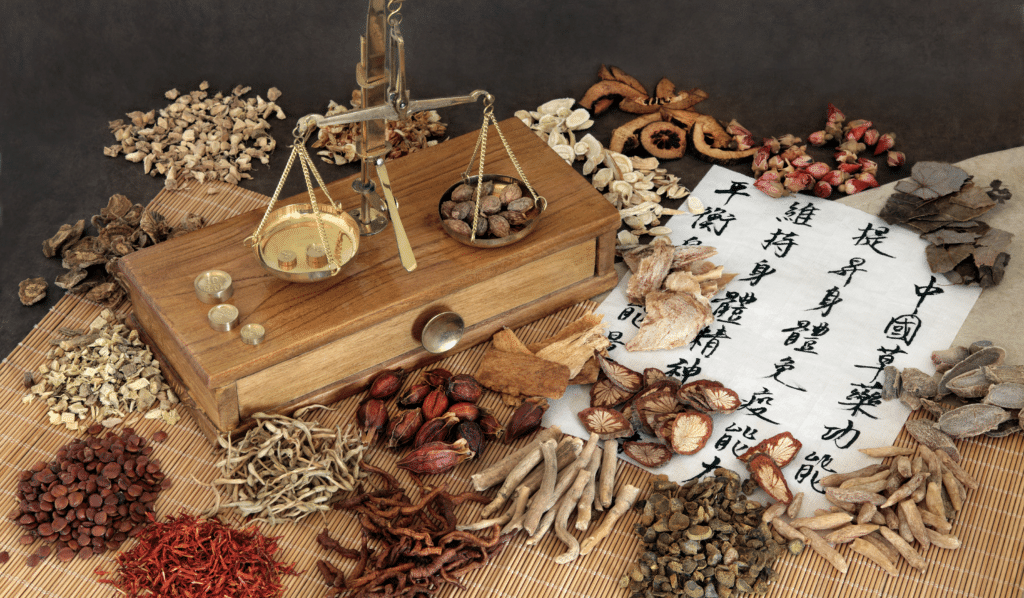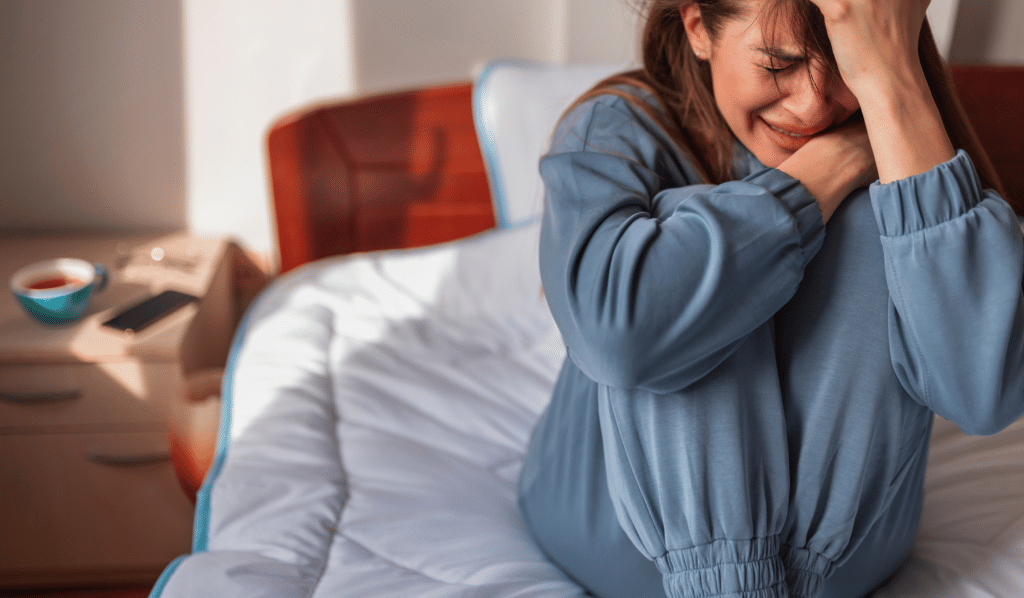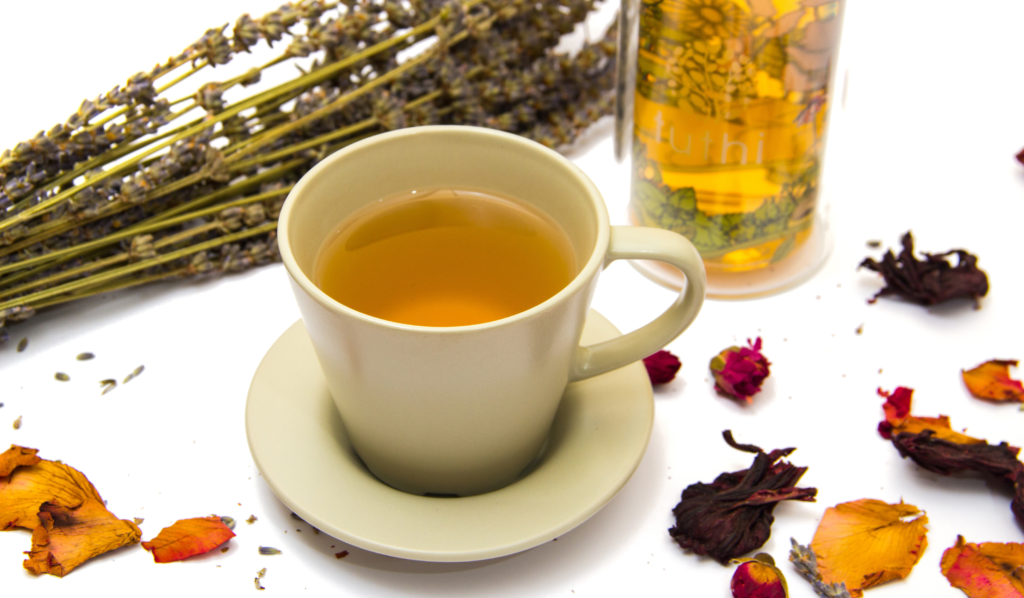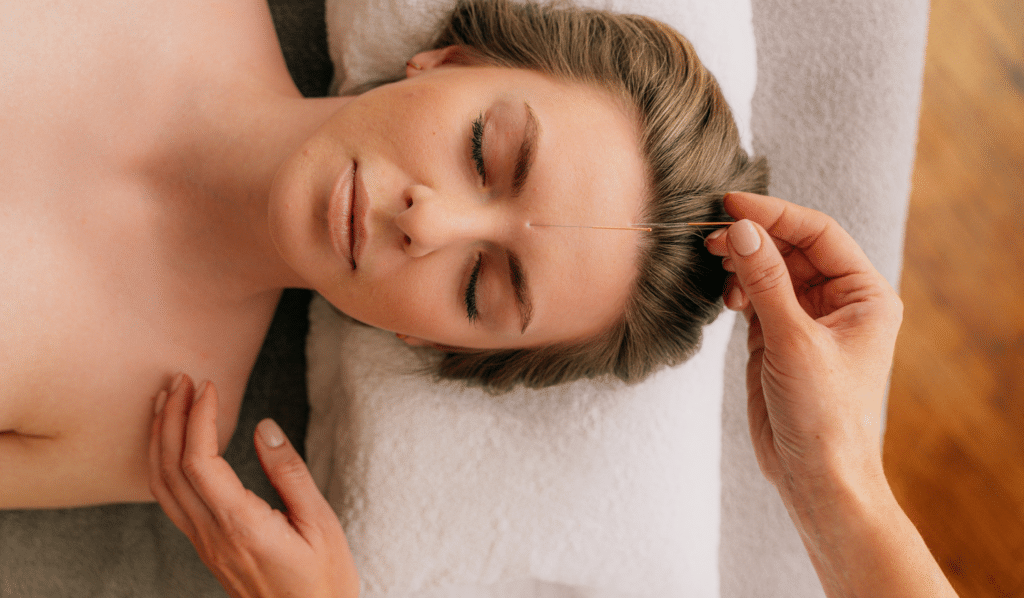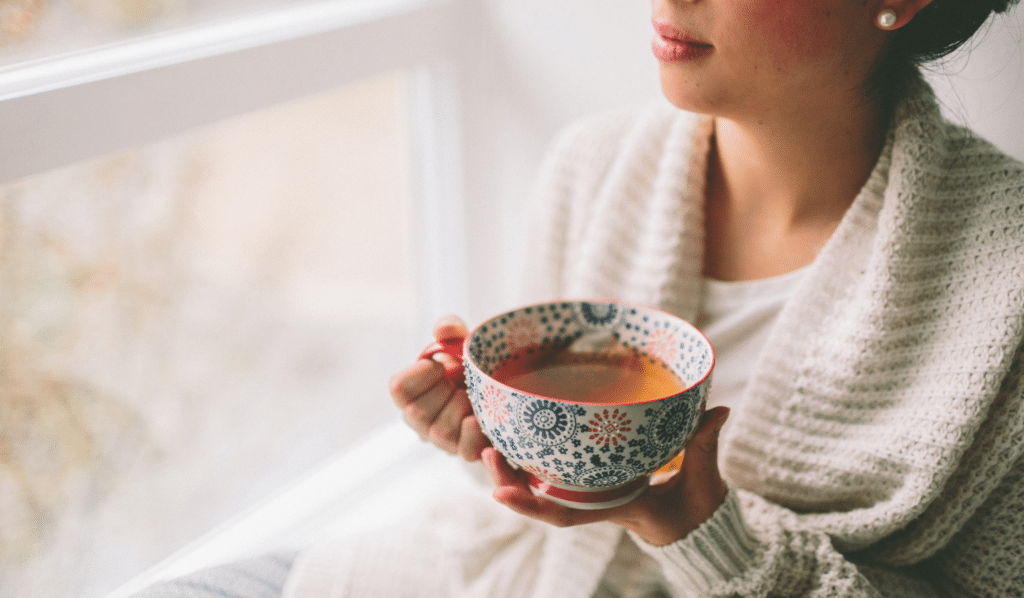Chinese Herbs for Anxiety: Natural Remedies for Anxiety and Emotional Balance
Anxiety can take many forms, from persistent worry and racing thoughts to physical signs like tension and restlessness. In the search for natural relief, many are turning to Traditional Chinese Medicine (TCM) and the wealth of wisdom it offers. Chinese herbs for anxiety are not only time-honored but also grounded in a holistic philosophy that addresses both the emotional and physical roots of distress. These herbs are known for helping to soothe the nervous system, balance energy (Qi), and support overall well-being. Natural remedies such as these can complement modern strategies, offering a broader approach to managing anxiety symptoms without relying solely on pharmaceutical treatments.
As awareness grows around holistic health solutions, Chinese herbal medicine is stepping into the spotlight. Practitioners across the world recommend specific formulas and individual herbs that promote calmness, restore internal balance, and ease emotional tension. Beyond providing temporary relief, these herbs work on underlying imbalances in the body’s energy flow, which TCM views as essential for emotional resilience. From adaptogenic roots to nourishing tonics, exploring Chinese herbs for anxiety opens a gateway to natural, time-tested strategies that fit seamlessly into daily life.
Chinese Herbs for Anxiety: Natural Remedies for Anxiety and Emotional Balance
Anxiety can take many forms, from persistent worry and racing thoughts to physical signs like tension and restlessness. In the search for natural relief, many are turning to Traditional Chinese Medicine (TCM) and the wealth of wisdom it offers. Chinese herbs for anxiety are not only time-honored but also grounded in a holistic philosophy that addresses both the emotional and physical roots of distress. These herbs are known for helping to soothe the nervous system, balance energy (Qi), and support overall well-being. Natural remedies such as these can complement modern strategies, offering a broader approach to managing anxiety symptoms without relying solely on pharmaceutical treatments.
As awareness grows around holistic health solutions, Chinese herbal medicine is stepping into the spotlight. Practitioners across the world recommend specific formulas and individual herbs that promote calmness, restore internal balance, and ease emotional tension. Beyond providing temporary relief, these herbs work on underlying imbalances in the body’s energy flow, which TCM views as essential for emotional resilience. From adaptogenic roots to nourishing tonics, exploring Chinese herbs for anxiety opens a gateway to natural, time-tested strategies that fit seamlessly into daily life.
Key Takeaways
- Chinese herbs for anxiety work holistically to address both the emotional and physical root causes of anxiety, helping to soothe the nervous system and restore internal balance.
- Suan Zao Ren, Bai Zi Ren, and Yuan Zhi are popular herbs that promote relaxation, improve sleep, and support mental clarity, helping to calm racing thoughts and ease irritability.
- Herbal formulas like Jia Wei Xiao Yao San and Tian Wang Bu Xin Dan combine multiple herbs to provide long-term emotional stability, addressing underlying imbalances like Liver Qi stagnation and Heart Yin deficiency.
- Chinese herbal medicine complements other therapies like acupuncture, cupping, and Tui Na, offering a well-rounded, natural approach to managing anxiety symptoms and promoting emotional well-being.
- Holistic lifestyle habits such as mindful breathing, gentle movement, and a balanced diet enhance the effectiveness of Chinese herbs, helping to reduce stress and restore calm over time.
Popular Chinese Herbs for Calming the Mind
1. Suan Zao Ren (Ziziphus Spinosa)
Known for its gentle calming nature, this traditional remedy nourishes the Heart Yin and Liver Blood, two foundations for emotional stability and restful sleep. People who experience frequent nighttime waking or struggle to fall asleep often find relief in its soothing properties. It extends its benefits into the daytime as well, easing irritability and nervous tension without causing drowsiness. Often combined with complementary herbs, Suan Zao Ren offers steady support for emotional balance and is well-suited for longer-term use under professional care.
2. Bai Zi Ren (Biota Seed)
An excellent choice for soothing anxiety linked to Yin deficiency, this herb helps calm the mind while nourishing the Heart. Its rich blend of essential fatty acids and antioxidants supports both emotional well-being and physical vitality. Particularly beneficial for individuals experiencing palpitations, night sweats, or internal heat, it replenishes bodily fluids and soothes agitation. With its moistening qualities, Bai Zi Ren gently restores a sense of calm and peace.
3. Yuan Zhi (Polygala Root)
When stress clouds the mind and memory feels unreliable, this herb helps lift mental fog and restore clarity. Traditionally used to open the Heart orifice and clear phlegm misting the mind, it strengthens the vital connection between the Heart and Kidney systems, promoting emotional stability. In herbal formulas, it is frequently chosen for its ability to ease feelings of apprehension and encourage clearer thinking, especially in times of heightened stress.
4. He Huan Pi (Albizia Bark)
Often praised as the “collective happiness bark,” this herb is treasured for its capacity to ease emotional constraint and disperse stagnant Qi. Its effects are particularly noticeable when emotional tension builds in the chest and diaphragm, creating a physical sense of tightness. By promoting Qi flow and encouraging emotional expression, He Huan Pi helps release built-up frustration and sadness, offering valuable support during times of emotional heaviness.
5. Long Gu (Dragon Bone)
For those experiencing anxiety accompanied by restlessness or a racing heart, the grounding influence of this fossilized mineral is especially beneficial. Its heavy, mineral-rich composition provides a stabilizing effect that anchors the spirit and calms erratic emotions. Often used alongside herbs like Mu Li (Oyster Shell), it fosters a comforting sense of security without overwhelming the system, making it an important addition to calming herbal blends.
6. Fu Shen (Poria with Root)
Drawn from the root section of the Poria mushroom, this herb plays a dual role by both calming the Shen (spirit) and supporting digestive harmony. By clearing dampness and phlegm that cloud the mind, Fu Shen promotes clarity and emotional stability. It is particularly useful when anxiety is accompanied by digestive discomfort or mental fog, offering a steadying influence that supports both the mind and body.
7. Wu Wei Zi (Schisandra Berry)
Valued for its adaptogenic properties, this five-flavor berry works holistically to balance Yin and Yang while helping the body manage stress. It enhances stamina and mental focus, making it especially helpful when anxiety coexists with fatigue. Its naturally astringent character stabilizes emotions, preventing the scatter that can arise under pressure, and encourages greater resilience against emotional ups and downs.
8. Dan Shen (Salvia Root)
Supporting both emotional ease and cardiovascular health, this herb invigorates blood circulation to calm irritability and restlessness. It is particularly effective when emotional tension presents alongside physical symptoms such as chest tightness or palpitations. By addressing blood stagnation, Dan Shen gently releases emotional blockages and restores a smoother internal flow, helping to ease mood swings and support a balanced emotional state.
9. Zhi Zi (Gardenia Fruit)
Cooling and clearing in nature, this herb helps disperse internal heat and calm agitation stemming from Liver Qi stagnation. Symptoms like irritability, flushed complexion, and insomnia often improve with its use. Zhi Zi is commonly included in formulas that target emotional irritability and restless sleep, helping to ease frustration and restore a sense of internal calm by soothing both mind and body.
10. Ye Jiao Teng (Polygonum Vine)
Especially helpful for people who struggle with sleep disturbances and emotional agitation, this nourishing vine is used to calm the Shen and relax the body. Its gentle action helps soothe frazzled nerves and relieve feelings of restlessness that often accompany anxiety. In addition to supporting better sleep, it also promotes circulation and helps release physical tension, making it a well-rounded choice for emotional support. Often blended into nighttime herbal formulas, it provides a comforting, natural way to ease both mind and body into a state of relaxation.
11. Mu Li (Oyster Shell)
When emotional upheaval feels overwhelming, the stabilizing effect of this mineral-rich shell offers welcome relief. Known for its ability to anchor the Yang and calm the spirit, it helps reduce sensations of anxiety such as palpitations and dizziness. The cooling nature of Mu Li is especially effective in clearing internal heat, which can intensify emotional agitation. Combined with other calming herbs, it supports a steady emotional state and provides physical grounding during periods of heightened stress.
12. He Huan Hua (Albizia Flower)
While the bark of Albizia addresses deeper emotional constraints, its delicate flower offers a lighter touch for soothing everyday tension. Perfect for lifting mood and easing mild irritability, it encourages the free flow of Liver Qi while promoting emotional openness. He Huan Hua is especially appreciated for its gentle uplifting effect, brightening the spirit without overstimulation. Used alongside other herbs in calming blends, it creates a balanced formula that nurtures emotional well-being with a soft, supportive energy.
Chinese Herbal Formulas for Anxiety Relief
Beyond individual herbs, Traditional Chinese Medicine offers time-tested herbal formulas specifically designed to restore emotional balance and ease anxiety. These carefully composed combinations address distinct patterns of imbalance within the body, making them especially effective for those experiencing complex or persistent symptoms. While single herbs provide targeted support, formulas harmonize multiple ingredients to address underlying disharmonies, promote systemic balance, and offer holistic relief from anxiety.
Jia Wei Xiao Yao San
Also known as the “Free and Easy Wanderer Plus,” this formula is a trusted choice for anxiety with irritability and internal heat signs.
- Soothes the Liver and clears internal heat
- Nourishes the blood to ease emotional frustration
- Supports smoother Qi flow to reduce tension in the chest and head
- Ideal for anxiety with mood swings, restlessness, and menstrual irregularities
- Helps manage stress-related physical symptoms like headaches or flushed skin
Tian Wang Bu Xin Dan
Known as the “Heavenly Emperor’s Heart-Supplementing Elixir,” this formula deeply nourishes Yin and calms the spirit.
- Addresses chronic stress, emotional exhaustion, and heart palpitations
- Supports restful sleep and reduces night sweats
- Replenishes Heart and Kidney Yin for long-term emotional balance
- Anchors the Shen (spirit) for greater internal calm
- Beneficial for people feeling drained, anxious, and unable to rest
Gui Pi Tang
Translated as “Restore the Spleen Decoction,” this formula focuses on replenishing energy and calming the mind.
- Strengthens the Spleen and nourishes the Heart
- Relieves anxiety linked with overthinking and mental fatigue
- Supports better concentration and emotional resilience
- Gently revitalizes both physical vitality and mental clarity
- Suitable for those feeling emotionally fragile and physically depleted
Gan Mai Da Zao Tang
Often called the “Licorice, Wheat, and Jujube Decoction,” this formula soothes emotional vulnerability and stress sensitivity.
- Nourishes the Heart and calms the Shen (spirit)
- Harmonizes the middle burner to ease internal tension
- Helps with emotional instability, frequent crying, or heightened sensitivity
- Encourages a grounded, centered emotional state
- Supports overall emotional balance during stressful periods
Each of these formulas has been cherished in Traditional Chinese Medicine for generations, offering tailored solutions for the many faces of anxiety.
At ACA Acupuncture & Wellness, we consider your unique presentation before selecting the right formula, ensuring that your treatment plan supports not only symptom relief but also the deeper balance of body and mind. When combined with our integrative therapies such as acupuncture, cupping, or tuina massage, these herbal blends become powerful allies in your journey toward emotional well-being.
Understanding the Causes of Anxiety in Traditional Chinese Medicine
In Traditional Chinese Medicine, anxiety arises from deeper energetic disturbances rather than being seen as an isolated emotion. It is often linked to imbalances between organs, Qi flow, and the harmony of body fluids and energy systems.
Core Imbalances Behind Anxiety:
| Pattern of Disharmony | Description | Signs You Might Notice |
| Liver Qi Stagnation | Blocked emotional energy from stress or frustration | Chest tightness, irritability, mood swings |
| Heart Yin Deficiency | Depletion of cooling, nourishing fluids | Insomnia, palpitations, anxiety at night |
| Kidney Yin Deficiency | Exhaustion of core energy reserves | Fearfulness, fatigue, low back discomfort |
| Blood Deficiency | Inadequate nourishment to mind and heart | Dizziness, poor memory, anxiety with fatigue |
| Phlegm Heat Accumulation | Excess heat and dampness clouding the mind | Restlessness, brain fog, rapid thoughts |
External Triggers That Aggravate Imbalances:
Ongoing emotional strain or trauma
Prolonged emotional distress, whether from personal loss, relationship challenges, or chronic stress, continuously disrupts the flow of Qi. In TCM, this creates stagnation, particularly in the Liver and Heart systems, leading to heightened feelings of anxiety and irritability.
Diets high in greasy or spicy foods
Excessively oily or spicy meals can generate internal heat and dampness, which in turn disturb the harmony of the body’s internal environment. These dietary patterns can aggravate emotional instability by overburdening the Liver and Spleen, making anxiety symptoms more pronounced.
Sleep deprivation or irregular sleep patterns
Disrupted sleep weakens the Heart and Kidney connection, both of which play crucial roles in calming the Shen (spirit). Without adequate rest, the body struggles to replenish its vital energy, making it more susceptible to anxiety and nervous tension.
Long hours of sedentary work without movement
Extended periods of inactivity cause Qi stagnation, particularly in the Liver, which relies on smooth movement to maintain emotional balance. Sedentary habits can increase feelings of frustration and mental restlessness, especially under pressure.
Seasonal transitions, especially from winter to spring (which heightens Liver Qi activity)
Seasonal shifts naturally influence the body’s internal rhythms. The transition from winter’s stillness to spring’s active energy stimulates Liver Qi, which can rise excessively if not properly balanced. This surge can lead to irritability, mood swings, and heightened anxiety.
By recognizing these patterns and triggers, herbal remedies can be selected with greater precision, addressing both the surface symptoms and the deeper root causes of anxiety. Thoughtful herbal support, tailored to these external influences, helps maintain internal harmony and strengthens emotional resilience.
Key Benefits of Chinese Herbs for Anxiety
Chinese herbal medicine offers more than momentary relief. These herbs work holistically, nurturing the body’s internal systems while gently calming emotional unrest.
Benefits at a Glance:
| Benefit | Impact on Anxiety |
| Smooth Qi circulation | Releases emotional tension and eases physical tightness |
| Nourishes Heart Yin & Blood | Calms the mind, supports restful sleep, and prevents palpitations |
| Anchors Yang & Clears Heat | Reduces irritability, racing heart, and emotional overheating |
| Calms the Shen (spirit) | Grounds emotional energy, reducing restlessness and nervousness |
| Supports adrenal and immune resilience | Helps the body adapt to stress and strengthens vitality over time |
Holistic Advantages:
- Sustained Emotional Balance: Herbs nurture long-term calm, not just short-term relief.
- Customizable Treatments: Formulas can be tailored to match individual needs and changing patterns.
- Gentle Integration: Safe for ongoing support when guided by a qualified practitioner.
- Supports Sleep Quality: Many anxiety-relief herbs also help with insomnia or restless sleep.
- Restores Body-Mind Harmony: Improves physical vitality, which in turn supports emotional steadiness.
Situations Where Herbal Support Excels:
- Emotional ups and downs related to hormonal changes
- Anxiety triggered by seasonal transitions
- Lingering tension after a stressful event
- When paired with mindfulness or gentle movement therapies
Risks and Precautions of Using Chinese Herbs for Anxiety
While natural, Chinese herbal medicine is not without considerations. Herbs influence the body’s energy systems, and their effectiveness relies on accurate pattern identification and responsible use.
Important Precautions to Keep in Mind:
- Pattern Accuracy Is Essential:
Misidentifying the root cause can lead to ineffective or even counterproductive herb choices. - Professional Guidance Matters:
Work with a licensed TCM practitioner to personalize your formula and ensure safe combinations. - Watch for Interactions:
Herbal remedies may interact with medications like antidepressants, anticoagulants, or sedatives. - Pregnancy and Breastfeeding:
Certain herbs are contraindicated during these stages and require professional evaluation. - Source Quality is Crucial:
Always use high-quality, tested products to avoid contamination with heavy metals or additives.
Potential Risks When Misused:
| Risk | Explanation |
| Overuse of cooling herbs | May suppress digestion or cause cold sensations in the body |
| Incorrect dosage | Can lead to digestive upset or diminished effectiveness |
| Ignoring underlying conditions | Delays appropriate care for more serious health issues |
| Self-prescribing complex formulas | Risks of imbalance or ineffective results without proper guidance |
When to Seek Professional Help Immediately:
- Anxiety symptoms worsen despite herbal support
- Panic attacks or severe insomnia occur
- Combining herbs with prescription medications
- Chronic health conditions alongside anxiety
- Depressive symptoms alongside anxiety
- Mental health feels increasingly unmanageable
- Persistent low energy or fatigue
- Muscle stiffness or physical tension that doesn’t ease
- Difficulty focusing or severe brain fog
- Sudden changes in appetite or weight
- Emotional numbness or detachment
Complementary Lifestyle Practices for Herbal Anxiety Support
While herbs provide foundational support, lifestyle choices play an equally vital role in nurturing emotional health. Integrating complementary practices enhances the effectiveness of Chinese herbal remedies, creating a more balanced, holistic approach to anxiety management. These supportive habits work alongside herbal treatments to restore harmony, calm the mind, and encourage the smooth flow of Qi throughout the body.
Supportive Habits to Enhance Herbal Benefits
- Mindful Breathing:
Deep, conscious breathing calms the nervous system, eases emotional tension, and supports smooth Qi flow. Practicing a few minutes of diaphragmatic breathing each day can help settle a restless mind. - Gentle Movement:
Practices such as qigong, tai chi, and yoga improve circulation and help release emotional stress trapped in the body. Gentle stretches and flowing movements keep the energy system flexible and responsive. - Consistent Sleep Schedule:
Regulating your sleep routine stabilizes the Heart and Liver energy, both deeply connected to emotional well-being. Quality sleep repairs the body and calms the mind, reinforcing the effects of calming herbs. - Balanced Diet:
Warm, nourishing meals with plenty of leafy greens and liver-supportive foods encourage smooth energy flow. Avoiding excessive cold or greasy foods prevents stagnation and supports digestion, which TCM links closely to emotional health. - Time in Nature:
Spending time outdoors, especially around trees or near water, helps restore balance to the Liver and soothes anxious thoughts. Nature’s rhythms gently realign internal energy flow. - Emotional Expression:
Journaling, creative expression, or talking with trusted friends allows emotional energy to move freely rather than becoming trapped. - Limit Stimulants:
Reducing caffeine, alcohol, and sugary foods prevents overstimulation of the nervous system, helping herbs work more effectively.
Integrating Therapeutic TCM Practices
1. Acupuncture
Through the careful stimulation of energy points, this ancient practice restores balance across the body’s internal systems. It works deeply to release internal tension, regulate Qi flow, and bring calm to an overstimulated nervous system.
Many people struggling with anxiety-related symptoms find noticeable improvements in emotional steadiness and sleep quality over time. Targeting points connected to emotional well-being, such as those related to the Liver and Heart, supports long-term harmony. With regular treatments, the body grows more resilient to everyday stress, creating a stable foundation for emotional clarity.
2. Cupping Therapy
The sensation of suction draws stagnant energy to the surface, allowing fresh circulation to flow through areas burdened by physical or emotional tension. Muscle tightness in the shoulders, chest, and back — often worsened by anxious states — begins to release as the therapy encourages deeper relaxation.
Alongside physical relief, many experience emotional lightness, as cupping helps to dissipate the heaviness associated with stress. This natural method works hand-in-hand with herbal remedies, promoting smoother energy flow throughout the body. Sessions can leave you feeling both physically rejuvenated and mentally unburdened, supporting an overall sense of ease.
3. Moxibustion
The gentle warmth of burning mugwort is more than comforting — it invigorates internal energy and disperses the cold stagnation that often accompanies anxious fatigue. As warmth penetrates the body, circulation improves, and the calming effect reaches both physical and emotional layers.
Many who experience chilliness or depleted energy notice a renewed sense of vitality after treatment. Beyond physical benefits, this therapy nurtures emotional grounding, helping to ease anxious thoughts and promote inner warmth. With regular sessions, moxibustion strengthens resilience, making it a powerful complement to herbal support for anxiety.
4. Tui Na Massage
Skilled hands work along meridian lines to unlock tension, soothe tight muscles, and release trapped emotional stress. Movements that combine pressure, kneading, and stretching encourage a healthy flow of Qi, fostering both relaxation and clarity.
The therapy naturally quiets the mind, offering relief from the racing thoughts that often accompany anxiety. Many leave a session feeling lighter, with improved circulation and a refreshed mental outlook. Used consistently, this practice supports overall emotional balance and enhances the benefits of herbal remedies for a holistic approach to well-being.
5. Reflexology
Working through precise pressure points on the feet, this therapy stimulates internal organs and clears energy blockages linked to emotional unrest. While the technique appears simple, it powerfully calms the nervous system and encourages emotional stability. People often report improved sleep, reduced stress levels, and an increased sense of emotional steadiness following sessions.
As tension dissolves under gentle pressure, the body’s natural healing mechanisms awaken, supporting calm from within. Reflexology beautifully complements herbal treatments, creating a fuller, more connected path to emotional wellness.
Embracing a Holistic Path to Emotional Balance
Choosing Chinese herbs for anxiety reflects a broader commitment to holistic well-being. These remedies go beyond symptom management, nurturing both the mind and body in pursuit of lasting emotional health. When combined with mindful lifestyle practices such as meditation, gentle movement, and proper rest, herbal support becomes part of a comprehensive approach to emotional resilience.
By addressing the root causes of anxiety and supporting the body’s natural balance, Chinese herbs offer a valuable complement to conventional strategies. Their time-honored use and modern relevance continue to make them a trusted choice for those seeking natural ways to navigate life’s stresses with calm and clarity.
At ACA Acupuncture & Wellness, we understand that finding emotional balance is not about quick fixes but about creating a foundation for long-term well-being. Every approach we offer is thoughtfully tailored to your needs, ensuring your care is as individual as your journey. Whether you are looking to ease daily tension or address deeper patterns of anxiety, we work with you to build a personalized path toward greater calm and emotional clarity.
Through the guidance of our experienced practitioners, we help you embrace each step with confidence, supporting your well-being in every season of life. With this integrative care, we aim to help you restore harmony and move forward with steady, lasting strength.
Sources:
Wang, Y., Chen, X., Wei, W., Ding, Y., Guo, R., Xing, J., & Wang, J. (2023). Efficacy and safety of the Chinese herbal medicine Xiao Yao San for treating anxiety: A systematic review with meta-analysis and trial sequential analysis. Frontiers in Pharmacology, 14, Article 10613521.
Yang, X., Shi, C., Bao, T., & Zhang, Z. (2023). Editorial: Traditional Chinese medicine for depression and anxiety. Frontiers in Psychiatry, 14, Article 10369342
Xie, J., Xu, D., Wang, C., & Huang, J. (2023). Jiawei Xiaoyao San in treatment of anxiety disorder and anxiety: A review. Chinese Herbal Medicines, 15(1), 14–22.
Frequently Asked Questions
What is the difference between adaptogenic herbs and calming herbs in Chinese medicine?
Adaptogenic herbs help the body adapt to stress and restore overall balance, supporting energy, stamina, and resilience over time. Calming herbs, on the other hand, work more directly to soothe the nervous system and ease emotional tension. While adaptogens build long-term resistance to stress, calming herbs provide more immediate relief from anxious feelings or restlessness. Both types can be used together for a well-rounded approach to mental health.
Are Chinese herbs for anxiety safe for long-term use?
When used under the guidance of a qualified practitioner, many Chinese herbs for anxiety are safe for extended use. Formulas are often adjusted over time to match your body’s changing needs, minimizing risks. It’s important to monitor for any subtle shifts in your health, as long-term use may require periodic evaluation. Always consult your practitioner to ensure safety, especially if combining with other treatments.
How long should I take herbal formulas to notice benefits for mental health?
Most people begin to notice improvements within a few weeks, though this varies depending on the individual and the severity of symptoms. Mild anxiety might respond within 2–4 weeks, while deeper imbalances often need longer, sometimes 6–12 weeks or more. Consistency is key, and combining herbs with supportive lifestyle practices enhances results. Regular check-ins with your practitioner help to fine-tune the formula over time.
Are there risks of side effects with long-term herbal use?
While Chinese herbs are generally well-tolerated, long-term use without professional oversight can lead to imbalances or digestive discomfort. Potential risks include interactions with medications, overstimulation from certain herbs, or effects on the digestive system if the formula is not properly matched. Working with a qualified practitioner ensures that herbs are rotated or adjusted as needed, keeping the formula safe and effective.
What is the best Chinese herb for anxiety?
There is no single “best” herb, as the right choice depends on your specific pattern of imbalance. For example, Suan Zao Ren is excellent for anxiety with sleep disturbances, while Bai Zi Ren is helpful for those with palpitations and internal heat. Adaptogens like Wu Wei Zi are valuable for supporting energy and resilience alongside anxiety. An individual assessment helps identify the ideal herb or formula for your needs.
Can herbal formulas address panic attacks and severe insomnia caused by anxiety?
Yes — many traditional formulas are specifically designed to calm the Shen (spirit), ease palpitations, and improve sleep quality. Herbs like Long Gu, Mu Li, and Fu Shen work to ground the mind and body, reducing panic sensations. When combined with lifestyle support and possibly acupuncture, herbal formulas can play a meaningful role in managing acute anxiety symptoms like panic attacks and severe insomnia.
Contact ACA Acupuncture & Wellness
Get in Touch
Newsletter Sign Up
LOCATIONS
MANHATTAN
QUEENS
NEW JERSEY
CALIFORNIA

ACA Franchise Opportunities
The over $4 billion US acupuncture market offers a great opportunity with over 10% annual growth rates and a continuing flow of new patients interested in the benefits of acupuncture.
